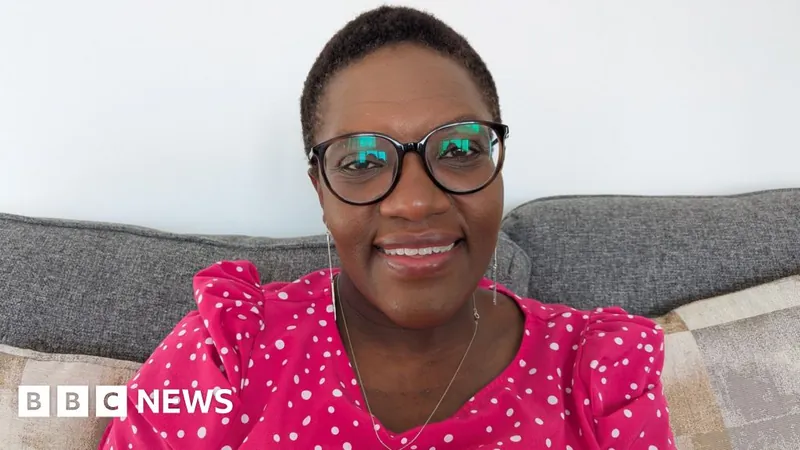
Surviving the Unthinkable: How London's Trauma Centres Are Changing Lives!
2025-04-03
Author: Yu
In an inspiring tale of resilience, Shelah Thomas from Luton shares her dramatic journey of recovery after a devastating car crash that left her physically and mentally scarred. The incident, which occurred in February 2024, involved a multiple-vehicle pile-up that required emergency services to cut her from her car. Shelah suffered significant injuries, including damage to her spine, brain, and hip, leaving her unable to walk. However, it was the emotional toll that hit her the hardest.
"I was really struggling to deal with everything that had happened," Shelah recalls. "The nightmares, the crying, the memories—I couldn't shake them off." Unseen effects like memory loss and anxiety took root, pushing her into a dark mental space where coping was a daily battle.
Thanks to a pioneering scheme implemented across London’s major trauma centres—King's College Hospital, Royal London Hospital, St George's Hospital, and St Mary's Hospital—Shelah found hope and support. The program, designed to integrate psychological help in trauma care, has been a game-changer, especially in the face of potential major incidents, from serious car accidents to terror attacks.
Professor Karim Brohi, a leading expert in trauma systems, noted the essential collaboration among psychology teams during crises, such as the Hainault sword attack and the tragic Wimbledon car crash. The teams not only support victims but also provide crucial assistance to families and healthcare workers grappling with the aftermath of such events.
Dr. Helen Devonshire, Shelah’s clinical psychologist, emphasized that trauma care must extend beyond physical injuries. "There is a growing recognition that healing the mind is just as important as healing the body," she stated, highlighting how 30-40% of patients experience long-term psychological issues after major trauma. The situation is dire; research shows that around 35% of trauma survivors struggle to return to work or education.
With the aim of addressing these psychological challenges early, the pilot project has successfully aided over 5,000 patients in its first year, both adults and children. Funded by the NHS London Violence Reduction programme and coordinated by Imperial College Healthcare NHS Trust in collaboration with West London NHS Trust, this initiative is set to renew its efforts in the coming year.
Shelah describes how the psychological support she received transformed her life, allowing her to reclaim independence by shopping, driving, and eventually going back to work. The journey wasn’t easy, but with the right support, she found the strength to confront her fears.
In a poignant moment of closure, Shelah returned to the scene of the accident to lay flowers for one of the other drivers who tragically lost their life. This act was more than a memorial; it symbolized a significant step in her healing journey.
As London continues to face the challenges of trauma, the city’s trauma centres are setting a crucial precedent, demonstrating that true recovery is a holistic process that addresses both physical injuries and emotional scars.





 Brasil (PT)
Brasil (PT)
 Canada (EN)
Canada (EN)
 Chile (ES)
Chile (ES)
 Česko (CS)
Česko (CS)
 대한민국 (KO)
대한민국 (KO)
 España (ES)
España (ES)
 France (FR)
France (FR)
 Hong Kong (EN)
Hong Kong (EN)
 Italia (IT)
Italia (IT)
 日本 (JA)
日本 (JA)
 Magyarország (HU)
Magyarország (HU)
 Norge (NO)
Norge (NO)
 Polska (PL)
Polska (PL)
 Schweiz (DE)
Schweiz (DE)
 Singapore (EN)
Singapore (EN)
 Sverige (SV)
Sverige (SV)
 Suomi (FI)
Suomi (FI)
 Türkiye (TR)
Türkiye (TR)
 الإمارات العربية المتحدة (AR)
الإمارات العربية المتحدة (AR)